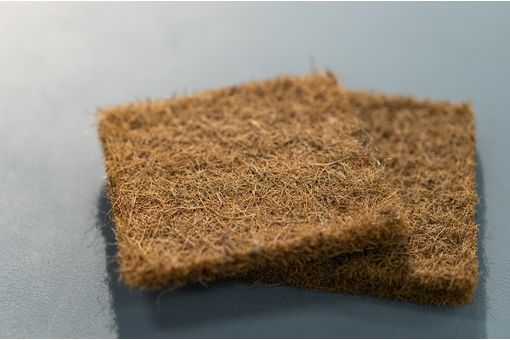Interviews
Textile trade bodies unitedly hail passage of Kissel amendment
14 Feb '09
6 min read

“We particularly want to U.S. Senator Kay Hagan (D-NC) who worked behind the scenes to make sure the Senate would agree to the amendment. We also want to thank the U.S. House Textile Caucus as well as other Senate supporters of the U.S. textile industry for helping to pass this amendment. This was an amazing effort against steep odds,” added Cass Johnson.
“Enactment of the Kissell Amendment will have an important impact on jobs across the United States because, for every worker employed under its provisions, it will help stabilize one additional textile and apparel job,” explained Ruth Stephens, Executive Director of the U.S. Industrial Fabrics Institute (USIFI). In turn, each of those two textile and apparel jobs will support another two more jobs in other sectors of the economy,” she said.
“The Kissell Amendment will immediately help textile and apparel companies because it will cover uniforms and other textile products purchased by DHS for TSA and the Coast Guard. This program can be expanded by the Obama Administration to cover other DHS agencies such as the Federal Emergency Management Agency (FEMA), U.S. Customs and Border Protection, the U.S. Secret Service, and U.S. Citizenship & Immigration Services. Needless to say, we will be encouraging President Obama to do this,” said Karl Spilhaus, President of the National Textile Association (NTA).
“It should also be noted that the Kissell Amendment was carefully crafted so as not to violate any U.S. trade agreements or obligations,” said Larry McClendon, Chairman of the National Cotton Council (NCC).
The U.S. textile and apparel sector has been hit particularly hard by the economic downturn with 60,000 jobs lost during the past twelve months. In the past year, 44 textile plants have closed, including 14 in North Carolina, 10 in South Carolina, 4 in Georgia, 7 in Alabama, and 7 in Virginia.
Berry Amendment Background:
The Berry Amendment requires the DoD to buy certain products, judged essential to military readiness, with 100 percent U.S. content and labor. These products include clothing and other textile items, specialty steel, and food. The Berry Amendment ensures military readiness through an active defense-industrial base and provides a reliable domestic source for certain vital goods during times of war.
Summary of the Kissell Amendment Expanding the Berry Amendment to DHS:
The Kissell Amendment would extend Berry to cover U.S. Coast Guard and TSA procurement of textile and apparel products. DHS could waive the Berry requirements if the specific item is not produced in the United States or cannot be procured in a reasonable time at a reasonable cost. It also requires DHS to apply these provisions in a manner consistent with international agreements signed by the United States.
The reason why the Kissell Amendment provisions would only extend to TSA and the Coast Guard and not other DHS agencies is because the U.S. government is a signatory to the WTO Agreement on Government Procurement (GPA), which prohibits Berry-type provisions. The United States has the option to exempt agencies critical to national security from the GPA, but only has chosen to exempt the Coast Guard and TSA within DHS.
“Enactment of the Kissell Amendment will have an important impact on jobs across the United States because, for every worker employed under its provisions, it will help stabilize one additional textile and apparel job,” explained Ruth Stephens, Executive Director of the U.S. Industrial Fabrics Institute (USIFI). In turn, each of those two textile and apparel jobs will support another two more jobs in other sectors of the economy,” she said.
“The Kissell Amendment will immediately help textile and apparel companies because it will cover uniforms and other textile products purchased by DHS for TSA and the Coast Guard. This program can be expanded by the Obama Administration to cover other DHS agencies such as the Federal Emergency Management Agency (FEMA), U.S. Customs and Border Protection, the U.S. Secret Service, and U.S. Citizenship & Immigration Services. Needless to say, we will be encouraging President Obama to do this,” said Karl Spilhaus, President of the National Textile Association (NTA).
“It should also be noted that the Kissell Amendment was carefully crafted so as not to violate any U.S. trade agreements or obligations,” said Larry McClendon, Chairman of the National Cotton Council (NCC).
The U.S. textile and apparel sector has been hit particularly hard by the economic downturn with 60,000 jobs lost during the past twelve months. In the past year, 44 textile plants have closed, including 14 in North Carolina, 10 in South Carolina, 4 in Georgia, 7 in Alabama, and 7 in Virginia.
Berry Amendment Background:
The Berry Amendment requires the DoD to buy certain products, judged essential to military readiness, with 100 percent U.S. content and labor. These products include clothing and other textile items, specialty steel, and food. The Berry Amendment ensures military readiness through an active defense-industrial base and provides a reliable domestic source for certain vital goods during times of war.
Summary of the Kissell Amendment Expanding the Berry Amendment to DHS:
The Kissell Amendment would extend Berry to cover U.S. Coast Guard and TSA procurement of textile and apparel products. DHS could waive the Berry requirements if the specific item is not produced in the United States or cannot be procured in a reasonable time at a reasonable cost. It also requires DHS to apply these provisions in a manner consistent with international agreements signed by the United States.
The reason why the Kissell Amendment provisions would only extend to TSA and the Coast Guard and not other DHS agencies is because the U.S. government is a signatory to the WTO Agreement on Government Procurement (GPA), which prohibits Berry-type provisions. The United States has the option to exempt agencies critical to national security from the GPA, but only has chosen to exempt the Coast Guard and TSA within DHS.
Popular News
Leave your Comments
Editor’s Pick
































-Ltd..jpg?tr=w-120,h-60,c-at_max,cm-pad_resize,bg-ffffff)





.jpg?tr=w-120,h-60,c-at_max,cm-pad_resize,bg-ffffff)
.jpg?tr=w-120,h-60,c-at_max,cm-pad_resize,bg-ffffff)






